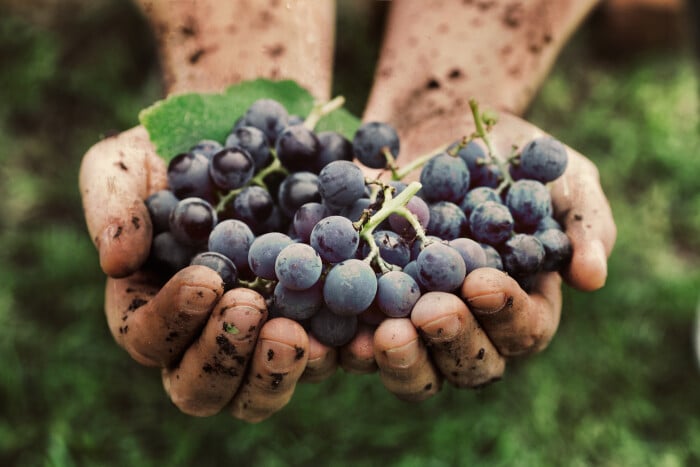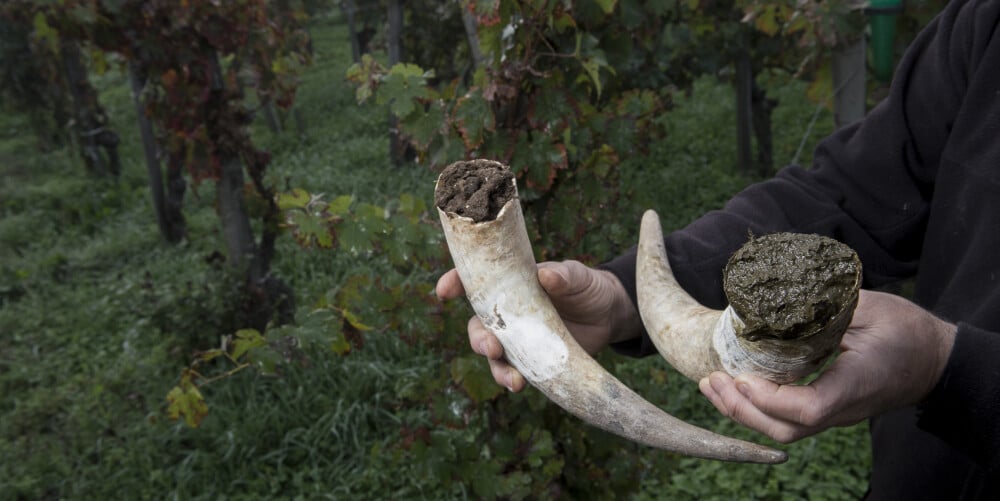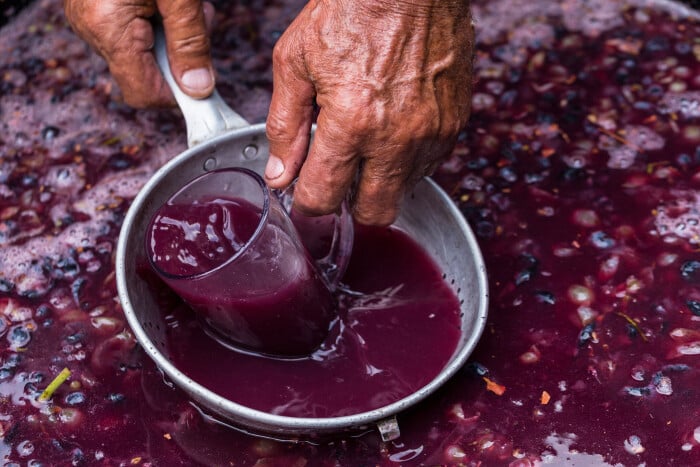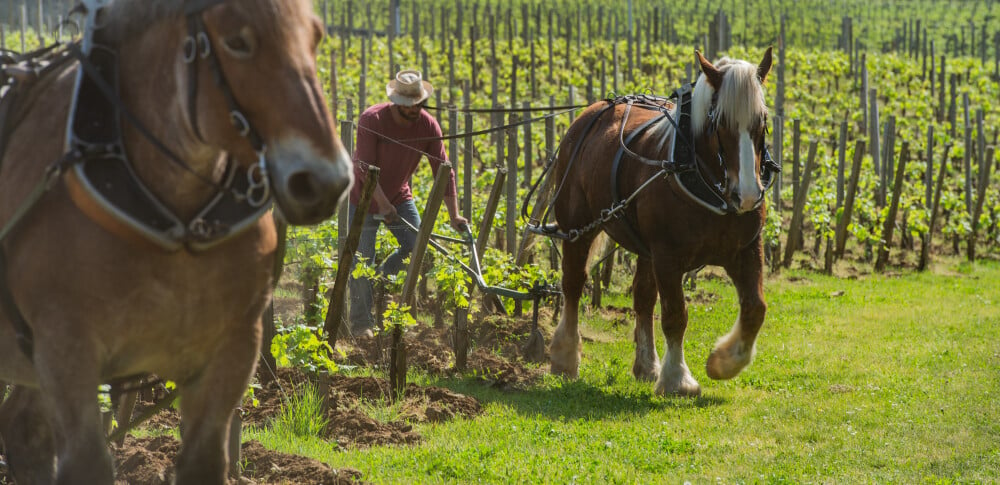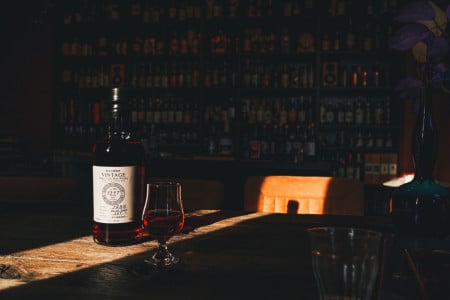What is a biodynamic wine?
There are various definitions on what exactly biodynamic farming means, but in summary, it is an "ecological, spiritual and ethical approach" to agriculture and thus to food production and final nutrition. Producing biodynamic wine thus follows ecological, spiritual and ethical guidelines.
Biodynamic wine is made within the philosophy that a wine domain with its vineyards is one independent organism. The ecosystem of this domain functions as a whole, with each component within the domain and its vineyards contributing to being a self-sufficient system. In this, only natural materials, soil and compost are used. These stimulate the soil for plant growth and vitality by feeding beneficial bacteria and fungi. Thus, chemical fertilisers and pesticides are not used for the sake of soil fertility. Any animals present (poultry, horses, sheep, cows), live within and fertilise this ecosystem, creating a natural and fertile environment for the wine grapes to grow in. An additional effect is that biodynamic viticulture also strives for sustainability: the estate and its vineyards are left in at least as good a state for future generations.
It is generally believed that biodynamic farming originated in the early 1920s. The Austrian philosopher and anthroposopher - Rudolf Steiner - launched the idea of biodynamic agriculture around 1920. This philosopher also promoted the use of agricultural practices based on the lunar calendar and astrological influences as opposed to a purely scientific approach.
Wineproducers from all over the world follow biodynamic farming, like many Burgundy wine producers and Bordeaux wine producers, wine producers from Napa valley, just to name a few areas. And on various scales: from famous winemakers like Domaine de la Romanee Conti to very small local producers as Nicolas Pavie.


